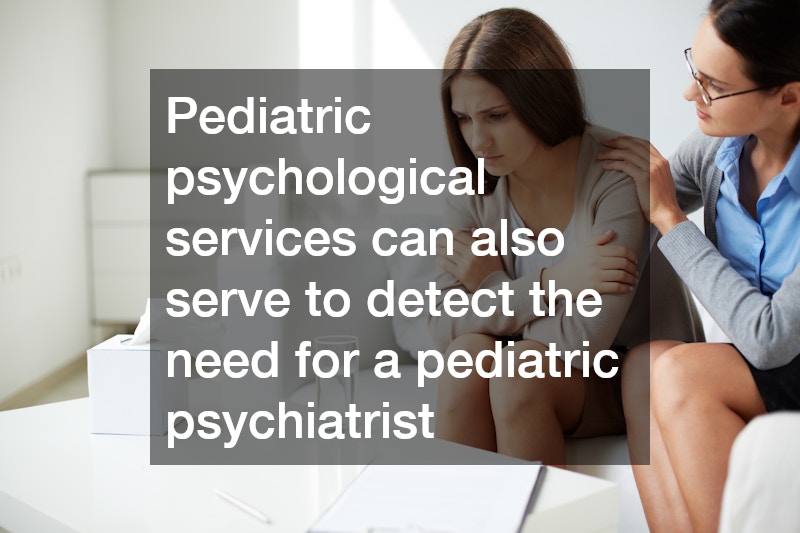
People of all ages can struggle with mental health disorders. One of the most common types of mental health disorders is depression. ADHD is very common among children and younger adults which is why you need to know the signs so you can get the necessary treatment your child needs. Concerns such as ADHD, social anxiety disorder, or developmental delays can contribute to the frequency of mental health problems during childhood and adolescence.

Whether you become concerned by your child’s mood or behavior at home, or if your child’s teacher points out your child’s potential mental health problem, it’s essential to bring your child to pediatric counseling services. The counselor can provide a psychological assessment and use child therapy techniques to help alleviate some of your child’s anxiety or depression. If the counselor detects family dysfunction as a contributor to the child’s mental health problem, they may suggest child-parent psychotherapy. These services can provide professional oversight of your family’s interaction.
Pediatric psychological services can also serve to detect the need for a pediatric psychiatrist. Depression and anxiety can have internal triggers, and your child may need medication to balance their body chemistry. Whenever a child is taking psychoactive medication, they should continue to be monitored by a psychiatrist.

Mental health is one of the most important aspects of a person’s life. It’s what dictates happiness, security and passion, an element to be cultivated and protected just as much as physical health. When anxiety, depression and ADHD put mental wellness at risk, it is the duty of therapists and teachers alike to provide children with the tools they need to cope and get through the day. Therapy card games and sand play items are just a few of the resources you can add to your office or classroom to brighten children’s day and provide them with an essential distraction during distracted moments or panic attacks. Below are simple descriptions of the function of therapy card games and how they help promote mental wellness.
How Common Is Anxiety And Panic Disorder?
An increasingly common form of mental illness is that of anxiety. This condition affects millions of Americans on a regular to semi-regular basis, making even basic tasks such as social interaction or concentrating incredibly difficult. Characterized by racing thoughts, panic attacks, irrational fears, fatigue and trouble sleeping, anxiety can leave kids feeling scared and withdrawn. Panic disorder and obsessive-compulsive disorder are two branches of anxiety, all having their own unique traits. Studies have shown children between the ages of 12 and 17 having a one in 10 chance of developing a serious mental health problem either at home or school. It is also possible a child can suffer from more than one form of mental illness.
What About Depression?
Depression is an incredibly debilitating mental health condition. It is characterized by feelings of hopelessness and listlessness, with fatigue, trouble sleeping and trouble concentrating also common side-effects. Every single year 12,000 children will be hospitalized because of suicide attempts traced back to childhood depression — this condition comes in various degrees of severity and can be environmental or hereditary in nature. One-third of all chidlren will go through a significant change in their familiy structure, such as a death in the family or divorce, that can seriously impact their emotional and mental wellness. The importance of child therapy products is how they allow children a healthy and involving distraction to help them cope with minor to moderate symptoms.
Can Therapy Tools Help ADHD?
Therapy card games are a perfect tool for helping children with ADHD. The year 2011 saw over six million children between the ages of four and 17 being diagnosed with a form of ADHD — despite this high number, only 50% actually go on to receive behavior therapy. This can mean the difference between a well-balanced and secure child performing well in school and a distracted, depressed child struggling to make friends and fit into a social or educational structure. Common symptoms of ADHD include concentration issues, mood swings, restlessness, trouble sleeping and trouble remembering basic tasks.
Why Should I Use Therapy Card Games And Toys?
Therapy resources for children provide kids of all ages and backgrounds the means of adjusting to mental illness. They can help them flourish in a social environment, allow them means of developing basic skills and can lessen the more severe symptoms of panic disorder or ADHD. A play therapy session can last anywhere from 30 to 50 minutes, long enough for them to get into a calming state of mind through the aid of a safe sand tray or self-esteem cards. Up until the age of 12 children use play as a means of communication, making these an ideal way of supporting their natural method of growth. Should your students or patients struggle with the above disorders, consider adding therapy card games to your roster.